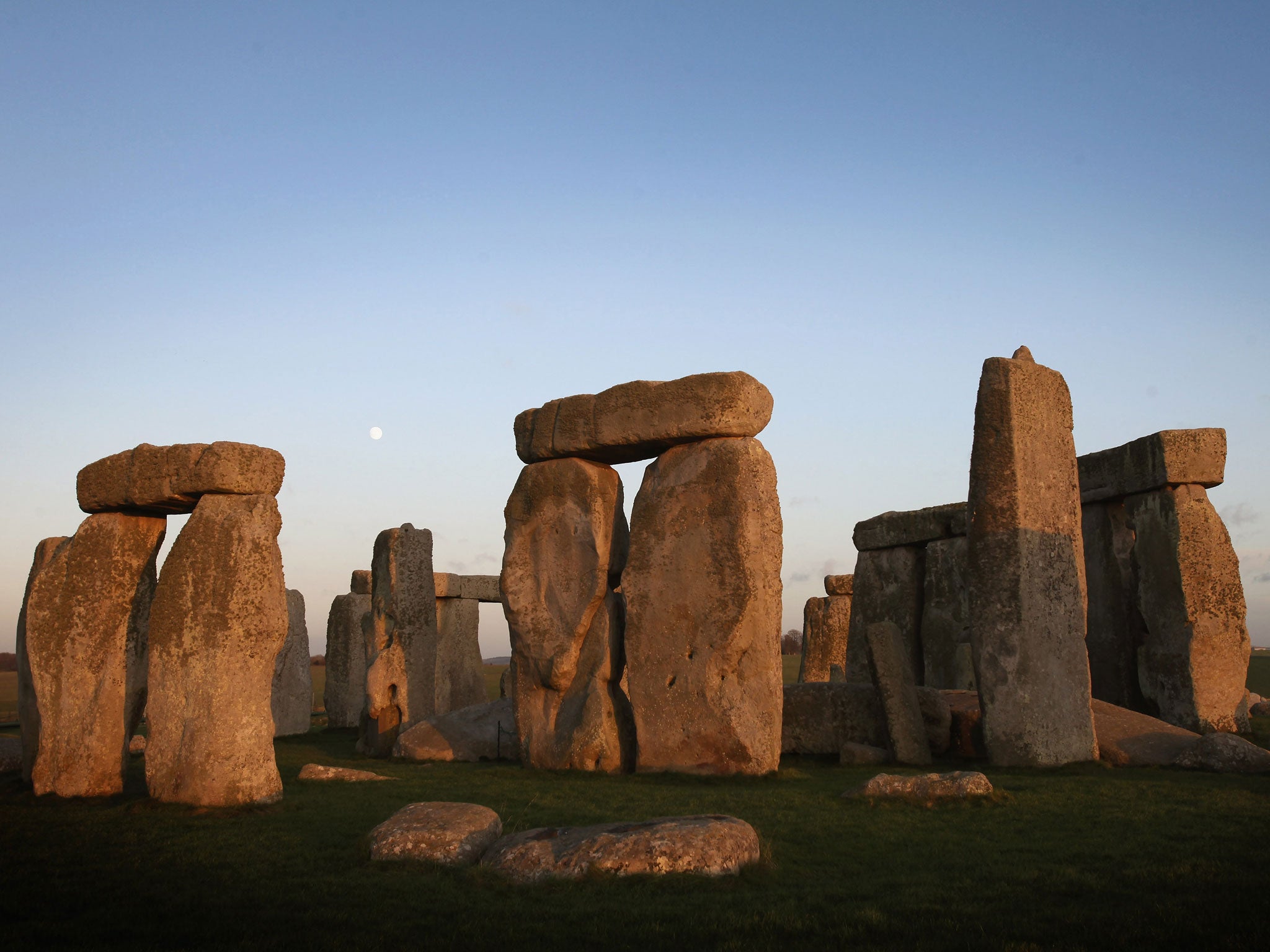Stonehenge is like a sacred 'prehistoric glockenspiel', researchers claim
Metallic, gong-like noises made by the monument when struck may explain why the stones were chosen by its builders

Your support helps us to tell the story
From reproductive rights to climate change to Big Tech, The Independent is on the ground when the story is developing. Whether it's investigating the financials of Elon Musk's pro-Trump PAC or producing our latest documentary, 'The A Word', which shines a light on the American women fighting for reproductive rights, we know how important it is to parse out the facts from the messaging.
At such a critical moment in US history, we need reporters on the ground. Your donation allows us to keep sending journalists to speak to both sides of the story.
The Independent is trusted by Americans across the entire political spectrum. And unlike many other quality news outlets, we choose not to lock Americans out of our reporting and analysis with paywalls. We believe quality journalism should be available to everyone, paid for by those who can afford it.
Your support makes all the difference.The pillars that form Stonehenge may have been chosen because they were like sacred “prehistoric glockenspiels”, according to researchers.
The sonorous quality of some of the bluestones used for the monument built between 3,000 BC and 1,600 BC may explain why they were transported 200 miles from Pembrokeshire, Wales, when there were plenty of local rocks to use nearby.
‘Archeo-acoustic’ expert Paul Devereux, the principal investigator on the Landscape and Perception Project, explained the choice to the BBC.
“There had to be something special about these rocks,” he said.
“Why else would they take them from here [Wales] all the way to Stonehenge?”
“It hasn't been considered until now that sound might have been a factor,” he said.
The study by researchers from Royal College of Art in London tried to record what “Stone Age eyes and ears” would have heard and seen in a prehistoric landscape.
To make the findings published in the ‘Journal of Time & Mind’, the team was given unprecedented access by English Heritage to the Carn Menyn ridge on Mynydd Preseli, south-west Wales, where many of Stonehenge's bluestones were quarried.
When the thousands of stones were struck with small hammerstones, researchers found that they gave off metallic sounds like bells, gongs or tin drums.
“There's lots of different tones, you could play a tune,” Mr Devereux said, adding: “In fact, we have had percussionists who have played proper percussion pieces off the rocks."
To prove their theory, when researchers tested all the bluestones at Stonehenge, several were found to make distinctive sounds, despite their acoustic potential being dampened by being set deep in the ground.
A number of bluestones at Stonehenge show evidence of having been struck, confirming why so many Neolithic monuments exist in the region, and provides strong evidence that the sounds made the landscape sacred to Stone Age people, the study concluded.
Professor Tim Darvill, an archaeology professor at Bournemouth University who has undertaken hundreds of excavations at Stonehenge, explained to the BBC that “pre-historic attitudes to stone” are likely to have been different to those of today.
“We don't know of course that they moved them because they rang but ringing rocks are a prominent part of many cultures,” he said.
“You can almost see them as a pre-historic glockenspiel, if you like, and you could knock them and hear these tunes.
"And soundscapes of pre-history are something we're really just beginning to explore," he said.
Join our commenting forum
Join thought-provoking conversations, follow other Independent readers and see their replies
Comments